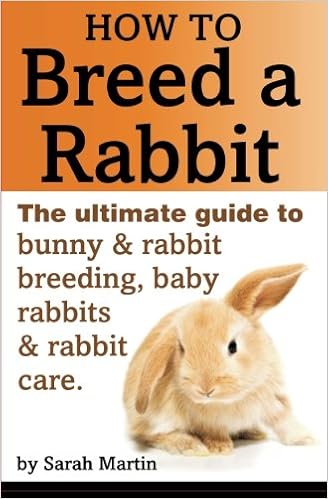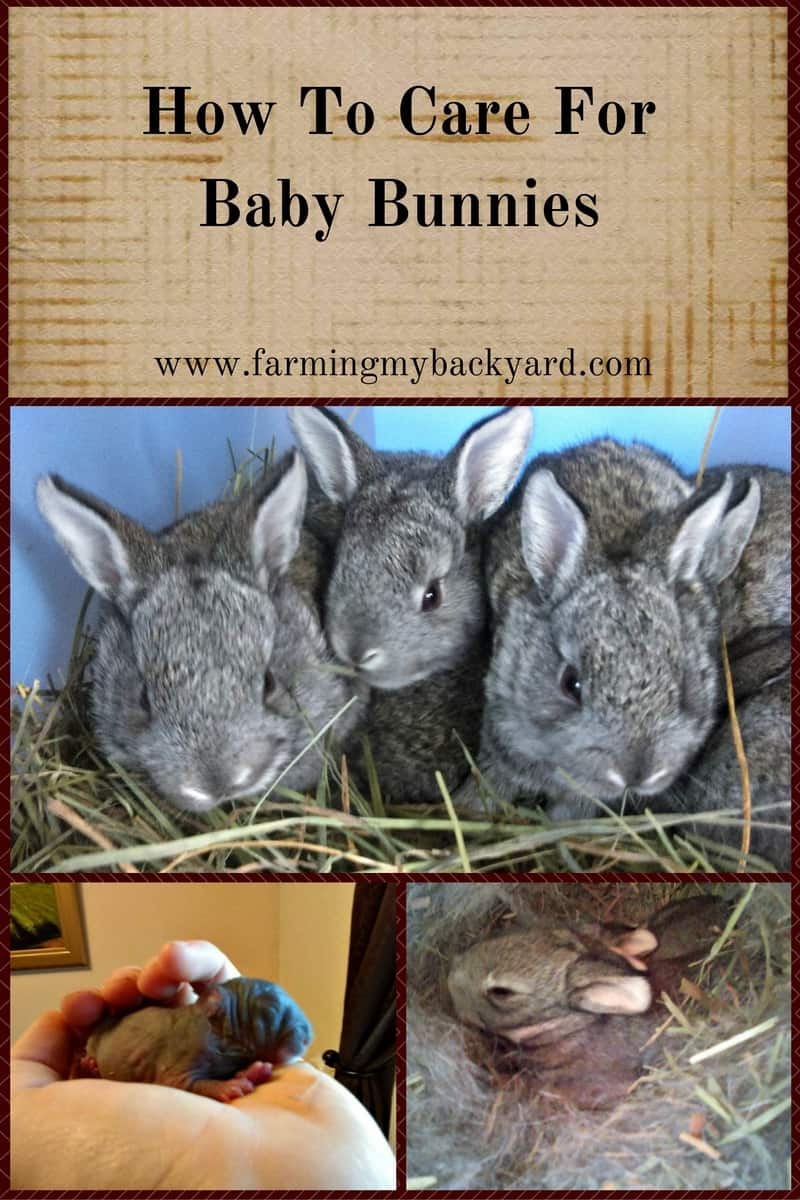
They eat a lot of hay a little bit of pelleted rabbit food and a small amount of fresh vegetables every day. So until your pet bunny has reached this point it is best to wait.

How to take care of a baby bunny The foremost duty you should perform is to keep them warm because most of the newborn dies for cold temperature and then check for boy injury if they have.
How to take care of a pet baby bunny. So until your pet bunny has reached this point it is best to wait. Until then keep an eye out for your pet and clean up after himher as needed. Their diet differs from an adult.
Baby bunnies have a diet different than adults. Hay should always be the primary source of food for rabbits but the kind of hay will differ according to age. For baby bunnies its best to feed them alfalfa.
You can also regularly. There are many circumstances which could find you taking care of a kit which is the official term for a baby rabbit. You may have access to an active mother rabbit who will nurse and care for the babies or you may be in it alone.
Perhaps your rabbit became pregnant or maybe you found an abandoned baby bunny in your local forest. Ultimately if you are caring for a baby bunny you need. However its important to learn how to take care of baby rabbits.
Though the mother will do most of the work there are things you need to know. Set up a warm nest box for the babies to live in. Check the kits each day to make sure they are full and gaining weight.
Once they reach 10 days old provide them with alfalfa hay and pellets to nibble. They should be weaned and removed from their. Bathing is stressful for bunnies and is usually unnecessary and puts them at risk for hypothermia.
If you absolutely need to bathe your bunny you can try spot cleaning using cornstarch or a damp cloth. If your bunny has mats avoid using scissors to remove it. When you bring home a baby bunny find a veterinarian who specializes in small animals.
Take your bunny for an initial health checkup to make sure that all is well. Ask for advice regarding nutrition health and safety. Have your rabbit spayed or neutered when appropriate to avoid aggressive behavior minimize chewing and improve litter box training.
Lie down on the floor near the bunny and read a book. Eventually your bunny will be curious and want to come see you. Pet her on the head and rub her cheeks or upper back.
Most dont like to be touched near the tail area. Rabbits are herbivores and dine on plants. Always provide your pet rabbit with ample amounts of grass hay including timothy hay or oat rye barley or meadow grasses.
Hay is rich in nutrients and prevents obesity and overeating. Furthermore rabbits like to nestle and nap in the hay. Caring for a true orphaned wild baby bunny is not an easy task.
But it is not impossible. Before hand over the orphaned baby bunny to the wildlife rehabber you should take care of the orphaned baby bunny. You could make a formula to feed the baby bunny with a syringe.
Please dont provide the cow milk to the baby bunny. Cow milk is not appropriate for the baby bunny. Instead of the cow milk you.
Fortunately mothers cecotropes give the bunnies the nutrition and protection a baby bunnys gut needs to digest food. About the third week the babies eyes should open. Check for eye infections which are common in newborn baby bunnies.
The infection can be treated with Neosporin eye drops from the vet. Until their eyes open 10 days. After each feeding it is important to make the bunny defecate and urinate to keep the intestinal tract and urinary system running smoothly.
Use a soft cloth or a cotton ball moistened with warm water and gently stroke the genital area. Bunnies need an herbivorous vegetarian diet. They eat a lot of hay a little bit of pelleted rabbit food and a small amount of fresh vegetables every day.
They need a high fiber diet and they dont eat grains like oatmeal or nuts. Feeding them isnt as simple as opening. Clean and disinfect the habitat and its contents at least once a week with 3 bleach solution.
Rinse and allow to dry completely before placing the rabbit back into the habitat. Remove wet spots daily. Change bedding at least once a week or more often as necessary.
Scoop litter pan daily. This would indicate serious dehydration. You cant deal with this on your own.
It is important that you take the baby bunny to a vet. Baby Bunnies at the 6-8 Week Mark. At the 6-8 week mark your baby bunnies will no longer be taking the milk.
Instead they should be handed specially-formulated pellets and some hay. You may need to show them. Feeding is quick and only takes between 2-3 minutes making it difficult to tell whether the baby rabbits are orphaned or not.
If you suspect that a baby rabbit is orphaned look out for the following signs. A sunken stomach which indicates that the bunny isnt feeding. Well-fed rabbits should have a full rounded abdomen.
Watch to see how to take care of a new bunnywhat to do when you bring a rabbit home. I hope this video gave you some helpful tips on how to prepare for a ne. I hope this video gave you some.
How to take care of a baby bunny The foremost duty you should perform is to keep them warm because most of the newborn dies for cold temperature and then check for boy injury if they have. After doing this initial monitoring then let their mother do her job.